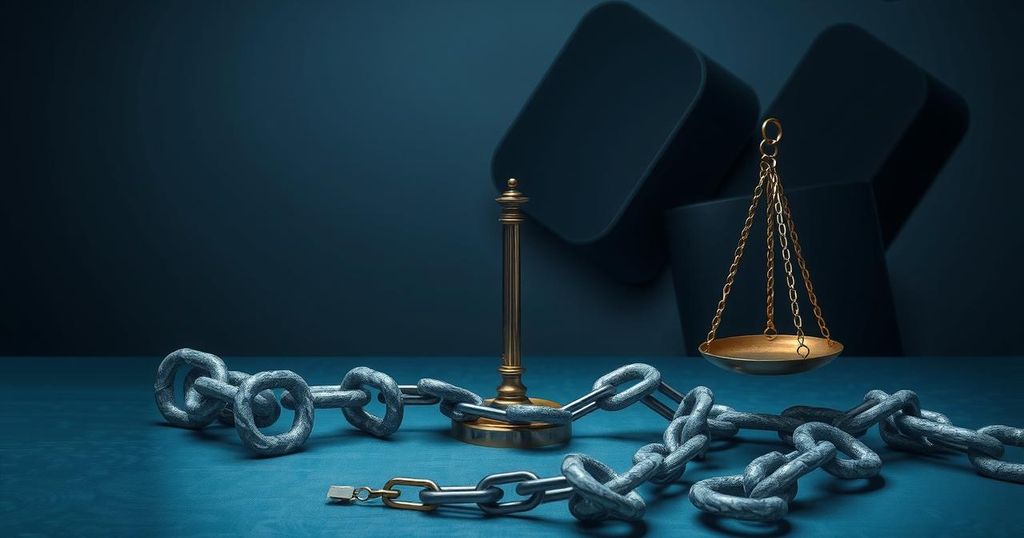President Bukele Proposes Prisoner Exchange with Venezuela
President Nayib Bukele of El Salvador proposed a prisoner swap with Venezuela, offering to return 252 U.S.-deported Venezuelans for political prisoners. This exchange highlights the complexities of crime and political repression in both nations. Bukele’s approach has generated significant attention regarding his leadership and human rights concerns.
Salvadoran President Nayib Bukele has proposed a prisoner exchange with Venezuela, suggesting the repatriation of 252 Venezuelans deported by the United States in return for political prisoners held in Venezuela. In a message directed at President Nicolás Maduro, Bukele emphasized that many of the detained Venezuelans in El Salvador have committed serious crimes, while he claims that the political prisoners in Venezuela are innocent of any wrongdoing.
The US and El Salvador maintain that many of the deported individuals are affiliated with the Tren de Aragua gang from Venezuela, as well as the Salvadoran gang MS-13, although evidence supporting these claims has been limited. President Maduro has labeled the deportation as a form of kidnapping and has asserted that those deported are not criminals and should be returned.
Among the prisoners mentioned by Bukele are notable political detainees such as Corina Parisca de Machado, mother of opposition leader María Corina Machado, and Rafael Tudares, linked to exiled candidate Edmundo González. Bukele also called for the release of four political leaders currently seeking asylum at the Argentine Embassy in Venezuela, who have faced accusations of terrorism and treason.
The asylum seekers have reported feeling besieged by Venezuelan security forces, who have set up checkpoints but have not directly invaded the embassy. Additionally, Bukele’s proposal includes prominent figures such as journalist Roland Carreño and nearly 50 detained individuals from various countries, including the United States.
As pressure builds regarding Bukele’s acceptance of deported migrants, who are alleged to be gang members by the previous US administration, the Salvadoran president remains a figure of significant popularity within his nation. He refers to himself as “the world’s coolest dictator,” a title reflecting his controversial stance towards civil liberties and crime control, which has drawn criticism from international human rights groups. Nonetheless, he achieved a remarkable victory in last year’s elections, reaffirming his leadership.
In summary, President Nayib Bukele of El Salvador is proposing a prisoner exchange with Venezuela, offering to return deported Venezuelans in exchange for political prisoners. His approach highlights the contrasting narratives regarding crime and political repression in both countries. Bukele’s proposal has sparked discussions about his leadership style, along with his popularity in El Salvador amid concerns about human rights abuses.
Original Source: www.wral.com




Post Comment